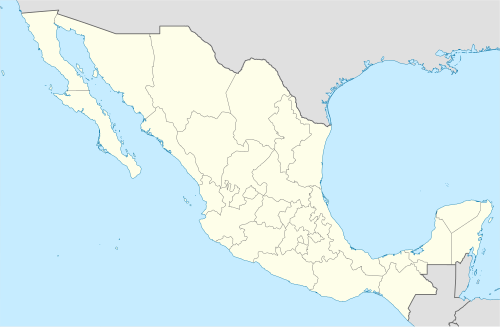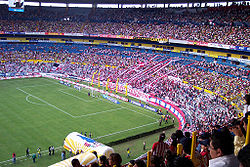| Copa Confederaciones México '99 | |
|---|---|
 1999 FIFA Confederations Cup official logo | |
| Tournament details | |
| Host country | Mexico |
| Dates | 24 July – 4 August |
| Teams | 8 (from 6 confederations) |
| Venue | 2 (in 2 host cities) |
| Final positions | |
| Champions | |
| Runners-up | |
| Third place | |
| Fourth place | |
| Tournament statistics | |
| Matches played | 16 |
| Goals scored | 55 (3.44 per match) |
| Attendance | 970,000 (60,625 per match) |
| Top scorer(s) | (6 goals each) |
| Best player | |
| Fair play award | |
← 1997 2001 → | |
The 1999 FIFA Confederations Cup was the fourth FIFA Confederations Cup, and the second organised by FIFA. The tournament was hosted by Mexico between 24 July and 4 August 1999.
Contents
- Venues
- Teams
- Qualification
- Squads
- Match officials
- Group stage
- Group A
- Group B
- Knockout stage
- Bracket
- Semi-finals
- Third place play-off
- Final
- Statistics
- Goalscorers
- Tournament ranking
- Awards
- Notes
- References
- External links
The tournament was won by Mexico, who beat Brazil 4–3 in the final. Mexico became the first host nation to win the FIFA Confederations Cup. The competition was to originally be held in three stadiums, in three cities in the country. However, since the stadiums in Monterrey were sponsored by a competing beer company other than the official advertiser, the city was left out of the tournament altogether. The tournament was originally scheduled for 8–20 January 1999, but was rescheduled by FIFA on 17 November 1998 to accommodate the scheduling of the participating European teams. [1]
The tournament was organized in two groups of four teams, in which two teams from both groups advanced to the semi-finals.


